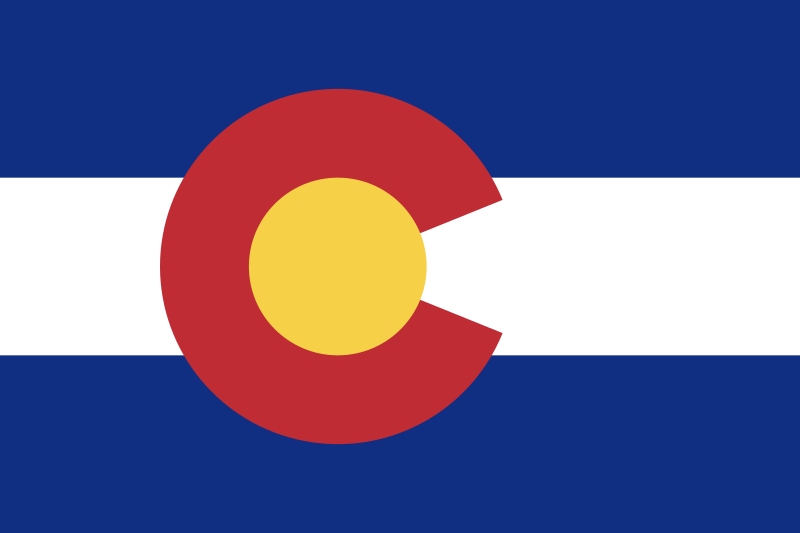Campaigns for three initiatives in Colorado faced a signature deadline of August 2. To qualify for the ballot, 124,632 valid signatures are required.
Learning Enrichment and Academic Progress Program and Marijuana Sales Tax Increase Initiative (#25):
This initiative would amend state law to create the Learning Enrichment and Academic Progress Program to provide out-of-school learning opportunities for children aged 5 to 17 in subjects including math, science, reading, writing, music, art, career education, and specialized support for those with special needs. The measure would increase the marijuana retail sales tax by 5% to partially fund the program. The initiative would result in a state revenue increase of $137,600,000 annually.
Learning Opportunities for Colorado’s Kids (LEAP 4 Co) is leading the campaign in support of the initiative. The committee reported $948,270 in contributions, with all but $20 coming from Gary Community Investment Company. The committee reported spending $609,012 on signature gathering through June 26. The committee's August 2 campaign finance report covering data through July 28 was not yet filed at the time of this article. LEAP 4 Co reported submitting over 200,000 signatures on July 30.
Coloradans Against School Vouchers registered as an issue committee to oppose the initiative but has not yet reported campaign finance activity.
Custodial Fund Appropriations Initiative (#19):
This initiative, which would amend the state constitution and state law, would transfer the power to appropriate custodial funds (state revenue not generated through taxes) from the state treasurer to the state legislature. Examples of such funds include pension funds and court-approved settlement funds. The measure defines custodial money as money received by the state that (1) originated from a source other than the State of Colorado, (b) was awarded or provided to the state for a particular purpose, and (c) that the state is acting as a custodian or trustee to carry out the purpose for which the funds were provided.
The Committee for Spending Transparency is leading the campaign in support of the initiative. According to the August 2 campaign finance report covering information through July 28, the committee had received $1.275 million in contributions, all from Unite for Colorado, and had spent $1.13 million on signature gathering.
Constitutional amendments in Colorado require a 55% supermajority vote to be ratified and added to the state constitution. This requirement was added by Amendment 71 of 2016.
Reduce Property Tax Rates and Retain $25 Million in TABOR Surplus Revenue Initiative (#27):
This initiative would amend state law to reduce the residential and non-residential property tax rates and authorize the state to retain and spend $25 million in revenue above the state’s TABOR spending cap, which it would otherwise be required to refund to taxpayers.
Cut Property Taxes is leading the campaign in support of the initiative. According to the August 2 campaign finance report covering information through July 28, the committee had received $875,000, all from Unite for Colorado, and had spent $868,728 on signature gathering.
Sponsor of initiatives #19 and #27 Michael Fields, Executive Director of Colorado Rising Action, said that around 200,000 signatures were gathered for each measure and that signatures would be submitted on August 2.
A fourth initiative, Initiative #31, which would amend state law to decrease the state income tax rate from 4.55% to 4.40%, faces a signature deadline of October 29, 2021, to qualify for the November 2022 ballot. The measure was sponsored by Jon Caldara of the Independence Institute. A committee— Colorado Character— registered to support the initiative on July 20, 2021.
From 2016 through 2020, successful initiative petition drives cost an average of about $850,000, ranging from volunteer efforts to $2.2 million.
Measures that can go on the statewide ballot in Colorado during odd years are limited to topics that concern taxes or state fiscal matters arising under TABOR, the Taxpayer’s Bill of Rights (Section 20 of Article X of the Colorado Constitution). This requirement was added to state statute in 1994.
Measures that can go on odd-year election ballots include measures proposing new taxes, tax increases, an extension of taxes, tax policy changes resulting in a net tax revenue gain, changes to revenue or fiscal obligations, delays in voting on ballot issues, and approval for the state to retain and spend state revenues that otherwise would be refunded for exceeding an estimate included in the ballot information booklet.
The last time an initiative appeared on an odd-year ballot in Colorado was 2013. The measure, which was defeated, would have changed Colorado’s flat personal income tax rate to a graduated income rate with increased rates. At least $10.4 million was raised in support of the initiative.
In 2020, eight initiatives appeared on the ballot in Colorado. Campaigns supporting the measures received an average of $3.36 million in support contributions and $2.49 million in opposition contributions. Campaigns supporting and opposing the eight initiatives on the 2020 ballot reported a combined total of $46.8 million in contributions.



